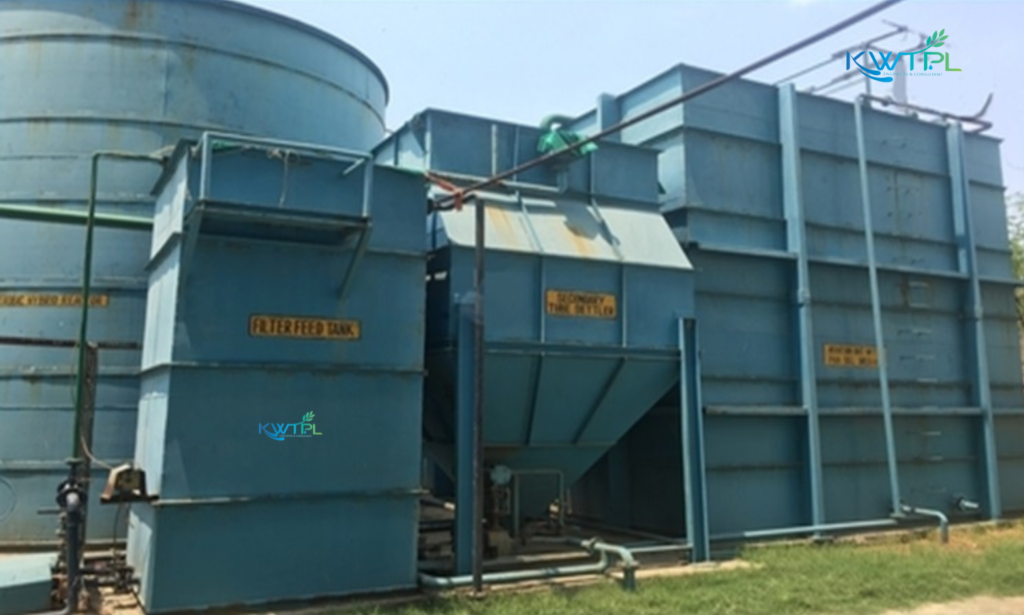What is ETP For Automobile Industry?

ETP Plant for Automobile Industry are specialized wastewater treatment systems designed to address the specific pollutants generated by automotive manufacturing processes. The automobile industry produces a variety of pollutants in its wastewater, including oils, heavy metals, suspended solids, and chemicals used in painting and coating processes. ETPs for the automobile industry is essential to comply with environmental regulations, reduce the environmental impact of industrial activities, and ensure responsible water management.
The Significance of ETP for the Automobile Industry
Effluent Treatment Plant holds immense significance in the automobile industry. As we all know, this sector is one of the largest contributors to environmental pollution due to its high energy consumption and waste generation.
ETP helps in treating and purifying the wastewater generated from various processes in automobile manufacturing. This ensures that harmful pollutants and chemicals are removed before the water is discharged into natural bodies such as rivers or lakes. By doing so, it prevents contamination of water sources and safeguards aquatic life.
ETP also plays a crucial role in reducing air pollution within automobile plants. It effectively captures harmful gases emitted during different manufacturing stages, like painting or welding. Through proper treatment methods such as adsorption or filtration, these emissions are neutralized before being released into the atmosphere.
How Does ETP Work in the Automobile Industry?
Effluent Treatment Plant plays a crucial role in maintaining environmental sustainability in the automobile industry. It ensures that the wastewater generated during various manufacturing processes is treated before being discharged into water bodies or reused within the facility.
The working process of ETP involves several stages to effectively treat the effluents. The effluent is collected and undergoes primary treatment where solid particles are removed through processes like sedimentation and filtration. Then comes the secondary treatment stage where biological processes like activated sludge or aerobic digestion take place to break down organic contaminants further.
After this, tertiary treatment follows which includes advanced techniques like coagulation, flocculation, and disinfection to remove any remaining impurities from the effluent. This purified water can then be safely discharged or reused for non-potable purposes such as irrigation or cooling towers.
To ensure efficient functioning of ETPs in automobile plants, regular monitoring and maintenance are necessary. Parameters such as pH level, chemical oxygen demand (COD), biochemical oxygen demand (BOD), total suspended solids (TSS), and oil & grease content are closely monitored to maintain compliance with regulatory standards.
Benefits of Implementing ETP in the Automobile Industry
- It helps to reduce water pollution by effectively treating and purifying the wastewater generated during various manufacturing processes. This ensures that harmful chemicals and contaminants are removed before the water is discharged into the environment.
- By ETP Plant, companies can demonstrate their commitment to environmentally friendly practices and comply with regulations set by environmental authorities.
- ETPs help to conserve water resources by recycling and reusing treated water for non-potable purposes such as cooling systems or landscape irrigation. This reduces the strain on freshwater sources and contributes to overall water conservation efforts.
- It helps them avoid hefty fines for non-compliance with environmental regulations while also reducing operational costs associated with wastewater disposal.
- ETPs can enhance a company’s brand image and reputation among customers who prioritize eco-friendly products and services.
- Integrating ETPs into operations within the automobile industry not only protects our environment but also yields numerous economic advantages while boosting corporate social responsibility initiatives.
ETP For Automobile Industry Manufacturer
KWTPL provide ETP Plant for automobileindustry. We designed ETP can handle wastewater from machine shops, floor shops, paint shops, and workshops either alone or in combination.
Designing an effluent treatment plant involves years of research in the automotive industry. With the help of science based ETP design, oils and emulsifiers produced in paint booths, paint shops, and machine shops are efficiently treated.
Before developing, producing, and installing an effluent treatment plant in your industry, heavy metals like copper, zinc, nickel, and chromium (alloy wheels) are also taken into consideration.
Conclusion:
Effluent Treatment Plants in the automobile industry is not just a regulatory requirement but also a crucial step towards ensuring sustainable practices. ETPs play a significant role in treating and managing the wastewater generated during various processes, thereby minimizing environmental pollution.
By effectively treating and purifying effluents before their discharge into water bodies, ETPs help protect our ecosystems, conserve water resources, and maintain ecological balance. They ensure that harmful pollutants are removed or reduced to safe levels, preventing damage to aquatic life and human health.